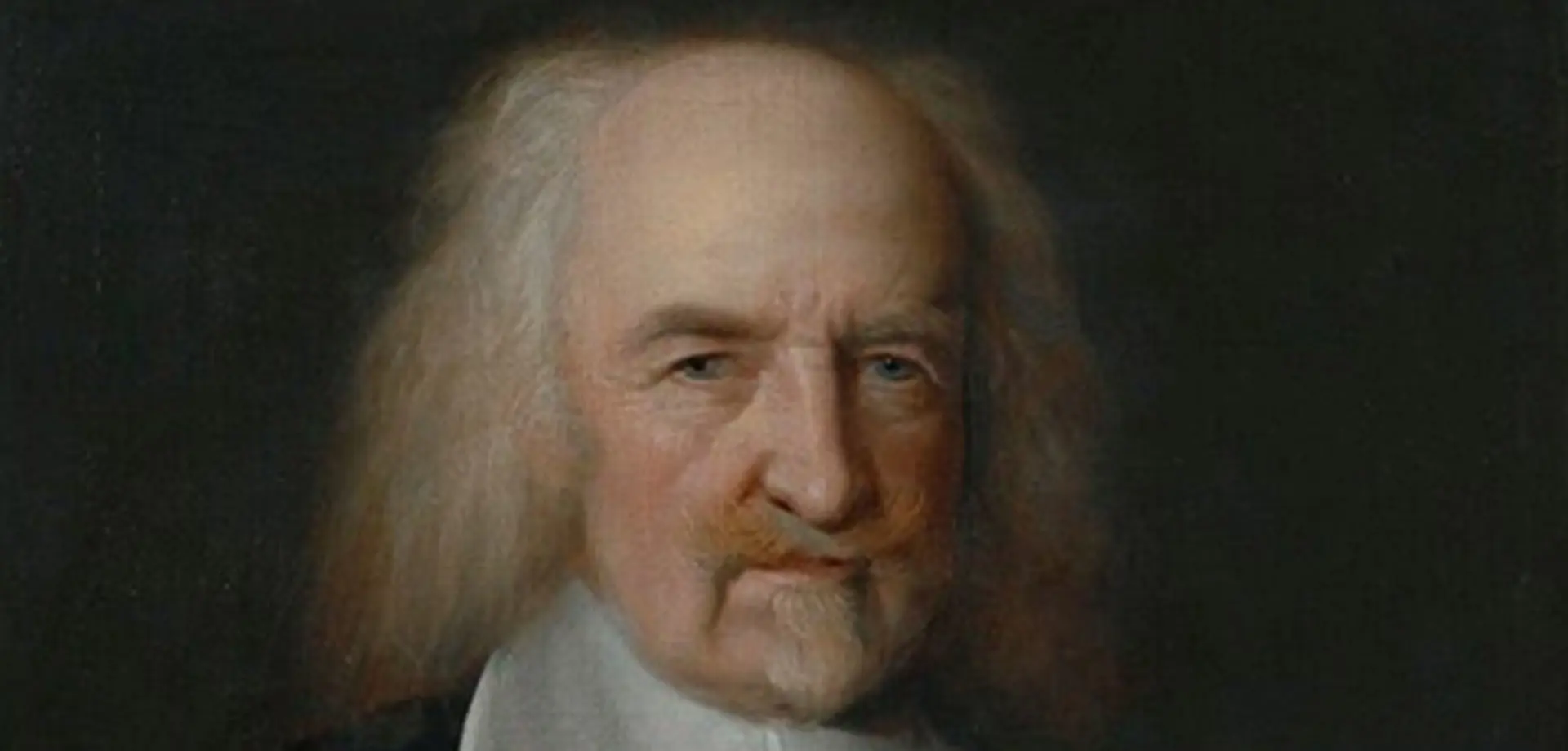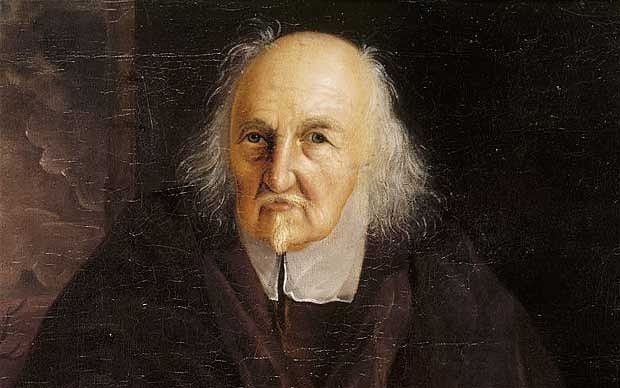Thomas Hobbes

Thomas Hobbes was a 17th-century English philosopher whose brutal honesty about human nature helped shape the foundations of modern political thought.
Biography
Born in 1588 in Malmesbury, England, during the chaos of the Spanish Armada, Hobbes claimed that fear and he were 'twins.' Raised by a wealthy uncle after his father disappeared, Hobbes received a classical education and eventually attended Oxford University.
In 1608, Hobbes became tutor to the Cavendish family, a powerful aristocratic household that would support him throughout his life. His travels across Europe brought him into contact with major thinkers like Galileo and Descartes, sharpening his belief in reason, science, and clear definitions as antidotes to political disorder.
England’s descent into civil war deeply affected Hobbes. Fearing the collapse of society, he fled to France in 1640. There, he began developing his most famous work, Leviathan, published in 1651. In it, Hobbes argued that in a 'state of nature'—without government—humans act out of fear, greed, and self-preservation. To escape this, people must enter a social contract and surrender power to a sovereign who can maintain peace.
Hobbes didn’t sugarcoat his politics. He believed in absolute authority—not because rulers are divine, but because humans are messy. He claimed that even bad rulers are better than no rulers, because without structure, chaos reigns.
Though often accused of atheism and tyranny-loving, Hobbes saw himself as a realist. He spent his final years under royal protection and continued writing well into old age, leaving behind a legacy that still challenges how we think about freedom, power, and order.
In a world of political gridlock, misinformation, and rising authoritarianism, Hobbes forces us to confront the uncomfortable: what holds civilization together? His ideas are a wake-up call that stability isn’t guaranteed—and that freedom without responsibility can spiral into anarchy.
?
Dig Deeper
An animated breakdown of Hobbes’s political theories, exploring his views on fear, order, and why humans might need strong rulers.
Crash Course explains Hobbes’s theory of the social contract and how it still impacts how we think about laws and liberty today.
Discover more

Abraham Lincoln
Born in a Kentucky log cabin and shaped by hardship, Abraham Lincoln rose to lead the nation through its greatest moral and constitutional crisis—the Civil War.

Jean-Jacques Rousseau
Jean-Jacques Rousseau reimagined modern freedom, education, and democracy through his social contract theory and philosophy of natural human goodness.

John Brown
John Brown was a radical abolitionist who believed that slavery would never end unless confronted with violence.
Further Reading
Stay curious!
